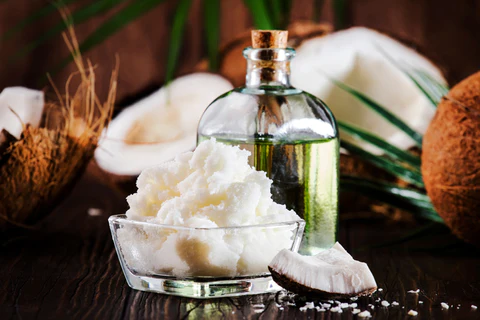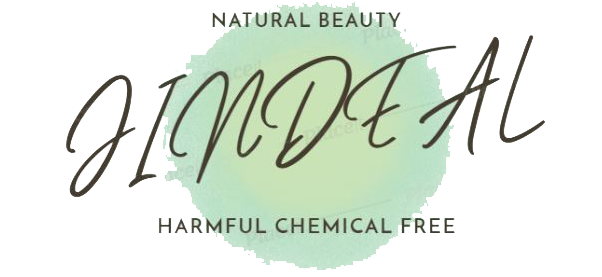Other
Coconut Butter vs Coconut Oil – Better Option for Hair & Skin Care
As the popularity of coconut grows, so do the number of coconut-based goods and applications for coconut. Coconut butter vs coconut oil is one of the two main candidates. This might be misleading since when maintained at colder temperatures, coconut oil thickens and becomes more butter-like. But this is not what coconut butter is. True coconut butter, on the other hand, is a whole distinct product. Today, we’ll look at the aspects of each of these and learn more about their benefits.

What is Coconut Butter?
Coconut butter is a spread formed from the kernel flesh of the coconut, similar to how peanut butter is made. Because of the multiple health and cosmetic advantages it delivers, it is referred to be a superfood. Coconut butter is less creamy than other butters. Its texture might change depending on the temperature.
What is Coconut Oil?
Coconut oil is obtained from the kernels of coconuts harvested from the coconut tree. Coconut oil is an edible oil that may be used for cooking as well as for skin care. Coconut oil is one of the healthiest oils available. It’s a monounsaturated fat, which means it’s saturated in fat but doesn’t include any hydrogen. Healing skin diseases like eczema and dermatitis are among the advantages of coconut oil. It also helps to reduce skin irritation by entering deep into the skin.
Benefits of Coconut Butter vs Coconut Oil
Coconut butter and coconut oil are both excellent for the skin and other parts of our bodies. Incorporating one or both of these products into your beauty routine may help to transform dry, damaged areas into smooth, supple and healthy ones.
Benefits of Coconut Butter
Coconut butter’s nutritional content is beneficial in a variety of ways. One of its supported features is personal beauty. Most beauticians recommend using coconut butter topically on the skin and hair in a variety of ways to get a variety of positive benefits.
- Skin Moisturizer: Coconut butter is an excellent natural moisturizer for the skin. It maintains a young appearance by promoting skin suppleness and fighting free radicals. The butter’s antioxidant components are readily absorbed by the skin and penetrate deep layers. Its fatty acid components combine to form a moisture-retaining barrier. As a result, coconut butter is commonly utilized in the manufacture of soaps, body butters, and moisturizers.
- Promotes Hair Health: One of the finest remedies for dandruff and dry scalp is to apply coconut butter sparingly to the roots of the hair and massage it in. It also encourages hair growth. This is analogous to the use of coconut oil, which is more popular in Southeast Asian nations. Essential fatty acids are abundant in coconut butter. As a result, it can help with split ends and hair loss.
- Heals Tattoos: Coconut butter contains lauric acid, which inhibits bacterial development. It also contains a lot of collagen, which is a key component in the wound healing process. It helps cells get to the wound site and promotes tissue development. Aftercare for tattoos can be difficult at times. It is the process through which the skin heals after millions of small needle pricks. Coconut butter is an excellent alternative for anybody seeking a remedy to help heal tattoos.
- Prevents Aging: Aside from the delicious aroma associated with coconut butter, there are a number of other advanced health advantages to using coconut butter for the body. If applied appropriately, coconut butter offers several skin advantages. The butter can help to decrease wrinkles and age spots while also deeply moisturising the skin. Coconut butter is high in antioxidants, which help combat free radicals, which cause skin to age more quickly.
Benefits of Coconut Oil
Coconut oil is one of the most widely used oils in the world. It has been in use since ages and for good reasons. Read on to find out more about the benefits of coconut oil.
- Moisturizing: Coconut oil is a popular substance for moisturising and soothing our hair, skin, and nails. Coconut oil is an excellent moisturiser and barrier for both body and face skin. It works well as the final step in your skincare regimen. Using coconut oil at night will ensure that your skin feels rejuvenated the next morning.
- Anti-Aging: While coconut oil is known for its hydrating properties, it is also an antioxidant booster that can help prevent premature ageing caused by free radical damage (like fine lines and wrinkles caused by pollution and UV rays). It’ll make the active component more effective if you use it after using a vitamin C serum in the morning—just remember to wear sunscreen.
- Natural Make-Up Remover: It’s not new to use oil as a cleanser, and coconut oil is a popular makeup remover that you may use as the first step in your double-cleanse routine. You can even use it as a face cleanser. Apply it to moist skin, massage in circular movements, then rinse. It will be much safer as it contains no harmful chemicals that are present in the store-bought makeup removers.
- Improved Barrier Function: This oil is not only quickly absorbed, but it may also enhance your skin barrier, keeping much-needed water in and raising surface lipid levels. Medium-chain fatty acids, found in coconut oil, are excellent for forming a skin barrier. This is especially good for those who have atopic dermatitis, which occurs when the skin barrier is damaged.
Coconut Butter vs Coconut Oil for Skin
Coconut oil has a higher fat content than coconut butter, but a narrower nutritional range. This implies that whether you should use coconut oil or butter for your skin depends on your goals. Coconut oil’s fatty acids make it an excellent moisturizer for dry skin.
Antimicrobial and anti-inflammatory qualities help protect skin and minimise inflammation. These antibacterial characteristics may also aid acne treatment. These qualities are also present in coconut butter creams for skin. It will only be less intense.
Coconut Butter vs Coconut Oil for Face
Coconut butter is an effective cosmetic ingredient for softening skin due to its high content of fatty acids and vitamins. Anti-inflammatory and therapeutic effects are also found in shea butter. Coconut butter can help to condition, tone, and soothe your skin, especially on your face.
Coconut oil is also rich in fatty acids that nourish and preserve the skin. If you have dry, flaky skin, replacing your normal moisturizer with coconut oil may soften and hydrate your skin, leaving it looking rejuvenated and smooth when you wake up.
Coconut Butter vs Coconut Oil for Hair
Coconut butter can be very nutritious for hair. Once you spritz your hair with a leave-in conditioner, run a dime-sized dollop of coconut butter through damp hair before drying. Your hair will be left silky smooth, with an amazing smell, and no greasiness at all.
Coconut oil when applied to hair reduces protein loss in all hair types. Coconut oil for hair also helps to seal in moisture, giving it a beautiful gloss and luster. Coconut oil contains vitamins and vital fatty acids that feed the scalp and aid in the removal of sebum build-up from hair follicles.
Coconut Butter vs Coconut Oil for Stretch Marks
Coconut butter is extremely hydrating, and frequent use can help your skin stay healthy and restore damaged cells. You can ap ply a small amount of coconut butter straight on the stretch marks. Massage for a few minutes and then put it on. Repeat many times throughout the day.
Coconut oil is emollient, which means it moisturizes the skin. It may become more elastic and less prone to stretch marks as a result. Coconut oil contains anti-inflammatory effects and may speed up the healing process for stretch marks already present.
Coconut Butter vs Coconut Oil for Lips
Coconut butter’s humectant characteristics prevent moisture loss from the sensitive skin of your lips, making it an extremely useful lip balm for the chilly winter months.
Coconut oil is well known for its hydrating properties. It’s perfect for chapped lips because of this. Emollients are non-cosmetic moisturizers that are primarily used to protect the skin and keep it moist. They keep your lips’ skin hydrated.
Coconut Butter vs Coconut Oil for Dry Skin
Coconut butter has emollient properties. It may aid in the softening or smoothing of dry skin. Coconut butter also includes anti-inflammatory properties that help to minimize skin dryness. Eczema and other skin-dryness issues may benefit from this treatment.
If you have dry, flaky skin, replacing your normal moisturizer with coconut oil may soften and hydrate your skin, leaving it looking rejuvenated and smooth when you wake up. Hydrates the body. Coconut oil strengthens your skin’s protective barrier layer, allowing moisture to be trapped inside and keeping your skin supple and moisturized.
Coconut Butter vs Coconut Oil for Pregnancy
Coconut butter is one of the most effective ways to keep a pregnant lady glowing throughout her pregnancy. It is a fantastic body and face moisturizer. The fat in it allows the butter to permeate the pores of the skin without blocking them.
Coconut oil can be used to relieve the pain of vaginal dryness, which is a common side effect of pregnancy. It’s also a fantastic way to relieve a painful or cracked nipple when nursing.

